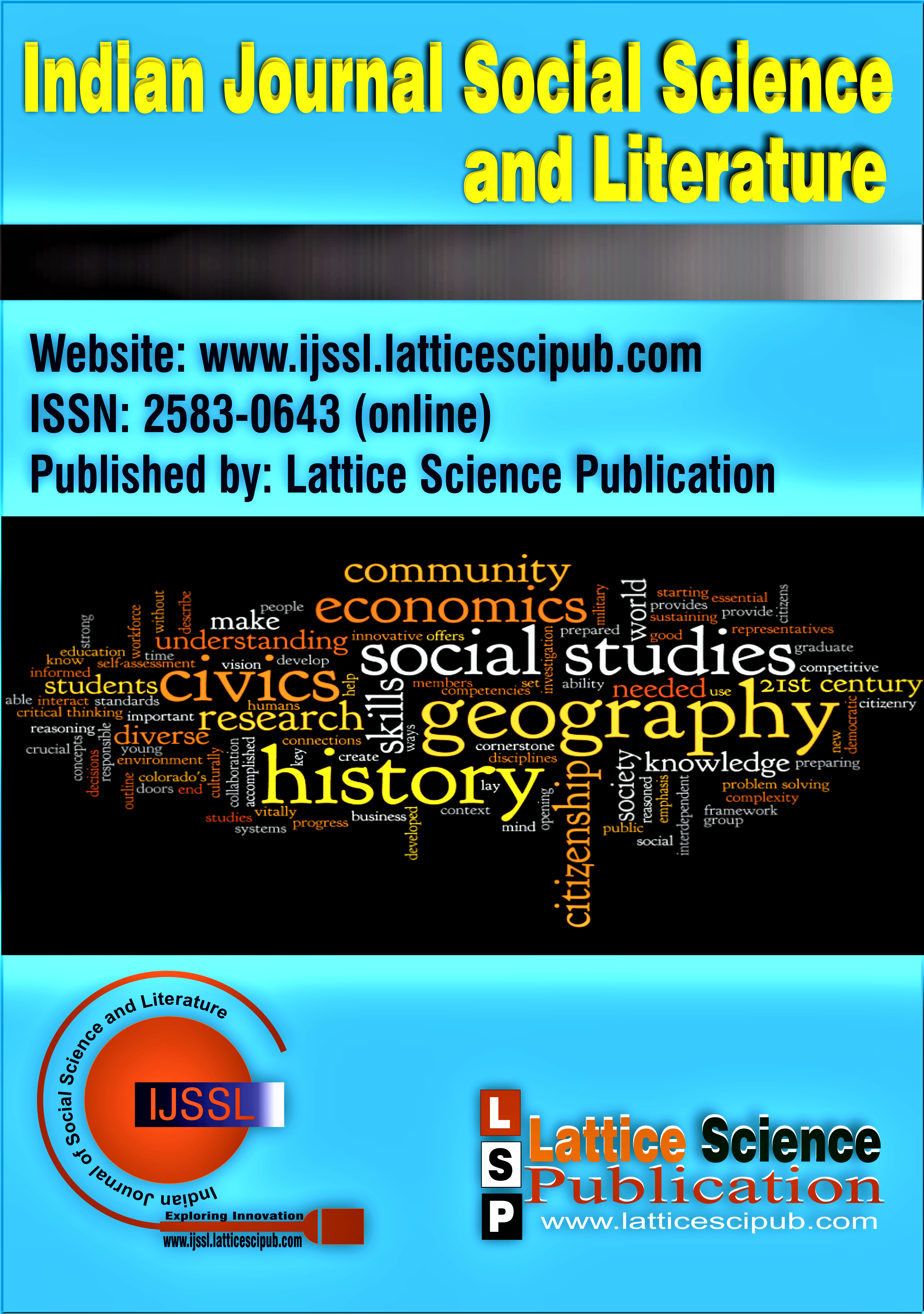Understanding Characteristics of Religion within Urban, Rural and Tribal Societies
Main Article Content
Abstract
The individuals, belonging to all communities, i.e. rural, tribal and urban have one of the major goals of bringing about improvements in their overall standards of living. This is regarded as one of the essential goals of individuals, belonging to all occupations, communities and socio-economic backgrounds. The individuals are normally wholeheartedly committed towards achievement of desired goals and objectives. The possessions of strong religious beliefs are regarded as vital. As a consequence, the individuals are able to prepare themselves adequately in carrying out all types of complicated tasks and activities. The individuals reinforce the viewpoint that worshipping the Almighty will be facilitating in putting into operation all types of tasks and activities in a well-organized and regimented manner. Furthermore, individuals will be well-prepared in overcoming all types of setbacks. The characteristics of religion are similar as well as different among individuals, belonging to urban, rural and tribal communities. The individuals need to make sure, they put into operation job duties, which are facilitating in carrying out all types of job duties and responsibilities in a satisfactory manner. Therefore, it is necessary for individuals to acquire an efficient understanding of religion. The main concepts that are taken into account in this research paper are, generation of information regarding characteristics of religion is enriching to individuals in all societies, characteristics of religion within urban, rural and tribal societies and advantages of acquiring an efficient understanding of characteristics of religion.
Downloads
Article Details

This work is licensed under a Creative Commons Attribution-NonCommercial-NoDerivatives 4.0 International License.
How to Cite
References
Chaudhary, R.K. (n.d.). Society and Culture: Plurality of Culture in
India. Retrieved October 18, 2023 from
http://www.ignou.ac.in/upload/Unit%2016.pdf
Clothey, F.W. (2006). Religion in India. A Historical Introduction.
Routledge Taylor and Francis Group. London and New York.
Retrieved October 18, 2023 from
http://vedicilluminations.com/downloads/Academic%20General/Cloth
ey_Fred_W._-_Religion_In_India__A_Historical_Indroduction.pdf
Social Well-being – Inter-personal Relationship. (n.d.). Retrieved
October 18, 2023 from edb.gov.hk
Spencer-Oatey, H. (2012). What is Culture? A Compilation of
Quotations. Global PAD Core Concepts. Retrieved October 18, 2023
from warwick.ac.uk
Spencer, L. (2018). What is Public Speaking? & Why is it Important?
Retrieved October 18, 2023 from business.tutsplus.com
Maharani*, A., Gunawan, H., & Wijaya, J. D. T. (2020). Millennial
Expectations about the Desire to Stay in the Workplace and Factors
that Influence it. In International Journal of Management and
Humanities (Vol. 4, Issue 7, pp. 37–39
https://doi.org/10.35940/ijmh.g0665.034720
Kasim, M. A. B., Hanafi, S. R. B. M., & Suki, N. M. (2019).
Relevance of Technology Acceptance Model for the Implementation of
Value Added Tax (VAT) In the United Arab Emirates (UAE):
Evidence of Distinctive Behavioral Connections. In International
Journal of Recent Technology and Engineering (IJRTE) (Vol. 8, Issue
, pp. 6357–6365). https://doi.org/10.35940/ijrte.c5784.098319
Tejesh, B. S. S., Begum, Md. S., Mayuri, N., Neeraja, S., & Durga, B.
P. (2019). A Novel Smart City Using IoT and Open Source
Technology. In International Journal of Engineering and Advanced
Technology (Vol. 8, Issue 6, pp. 4633–4637).
https://doi.org/10.35940/ijeat.f8912.088619
Hasan, Dr. S. B. (2022). Ala-ul Mulk: A Political Genius and
Confidant of Alauddin Khalji. In Indian Journal of Social Science and
Literature (Vol. 1, Issue 3, pp. 5–8).
https://doi.org/10.54105/ijssl.c1054.031322
Bashid, N., & Prabha, R. R. (2023). The Portrayal of LGBTQIA+
Community, in Different Religions in India; A Comparative Analysis
of Hindu, Muslim & Christian Scriptures. In Indian Journal of
Mass Communication and Journalism (Vol. 2, Issue 4, pp. 1–9





